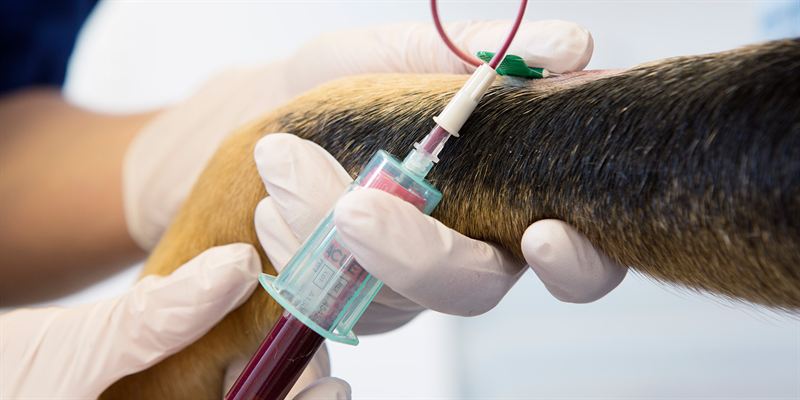New study on the diagnostic quality in veterinary care

Anicura, one of Europe's leading providers of high-quality veterinary care for companion animals, presents today a new study on the quality of laboratory and medical imaging in veterinary care. The study is part of AniCura’s quality development program QualiCura, and shows a great variance in skills and routines between different veterinary clinics in Europe.
Over the past decade, veterinary care has developed rapidly and methods used in treatments, diagnostics and medical examinations more and more resemble those used in human healthcare. Many veterinary clinics have also joined larger veterinary care companies which has enabled significant investments in modern, advanced equipment for both imaging and laboratory diagnostics such as MRI and CT.
A proper diagnosis is crucial to take the right decision about treatment. But advanced equipment alone is not enough; the quality of both laboratory and medical imaging is highly dependent on established processes, quality controls and above all trained personnel.
- Merely purchasing advanced equipment is not enough. Clinics need trained and qualified staff to analyse results, and dependable procedures so that the tests and examinations performed are reliable and comparable. If a clinic lacks the right skills, I recommend sending samples and x-rays for analysis by specialists at other clinics, says Anneli Bjöersdorff, veterinarian with a PhD in microbiology who works with laboratory diagnostic quality at AniCura.
AniCura's study was conducted during the third quarter this year and is part of the company’s proprietary quality development program QualiCura. The study included almost 80 animal hospitals and clinics in seven countries, and showed that just under half of the clinics carry out regular quality checks of laboratory instruments and medical imaging equipment. Half of the laboratory departments have a veterinarian-in-charge. The presence of established procedures for taking samples and analysis varied, but 60 per cent of the clinics in the study have established procedures for the most common urine and blood tests, while most clinics lack good procedures for growing bacterial cultures.
- This is the first time a study like this is performed, and we hope the results can draw the industry’s attention to what reliable, high-quality diagnostic care actually requires, says Anneli Bjöersdorff.
All AniCura's animal hospitals and clinics have x-ray and laboratory analysis equipment. More than 40 of the clinics within AniCura are also equipped with CT (computer tomography) and 16 clinics with MR (magnetic resonance imaging). The animal hospitals and clinics that participated in the study have received the results, together with recommendations on processes and procedures for various analyses.
For further information please contact
Maria Tullberg, Group Communications Manager, AniCura, +46 736 268 886
About AniCura
AniCura is a family of well-known animal hospitals and clinics specialised in veterinary care for companion animals. Born out of the idea that sharing resources creates opportunities for better veterinary care, the company was established in 2011 as the first merger of companion animal hospitals in the Nordic region. Today, AniCura is a role model within specialised veterinary care and a valued partner for pet owners and referring veterinarians across Europe.
AniCura offers a wide range of high quality medical services covering preventive and basic health care as well as advanced diagnostics, internal medicine, intensive care, surgery and orthopaedics. AniCura also provides rehabilitation, physiotherapy and dietary advice and offers selected pet food and care products.
AniCura provides modern, high-quality veterinary care for pets at 180 European locations and creates peace of mind for pet owners through excellent access and patient safety. Every year, AniCura’s 3,500 passionate veterinary professionals attend to more than two million companion animal patients. AniCura is a trusted training and referral body.
For information on how AniCura is working to shape the future of veterinary care, please visit our website www.anicuragroup.com
Tags:


